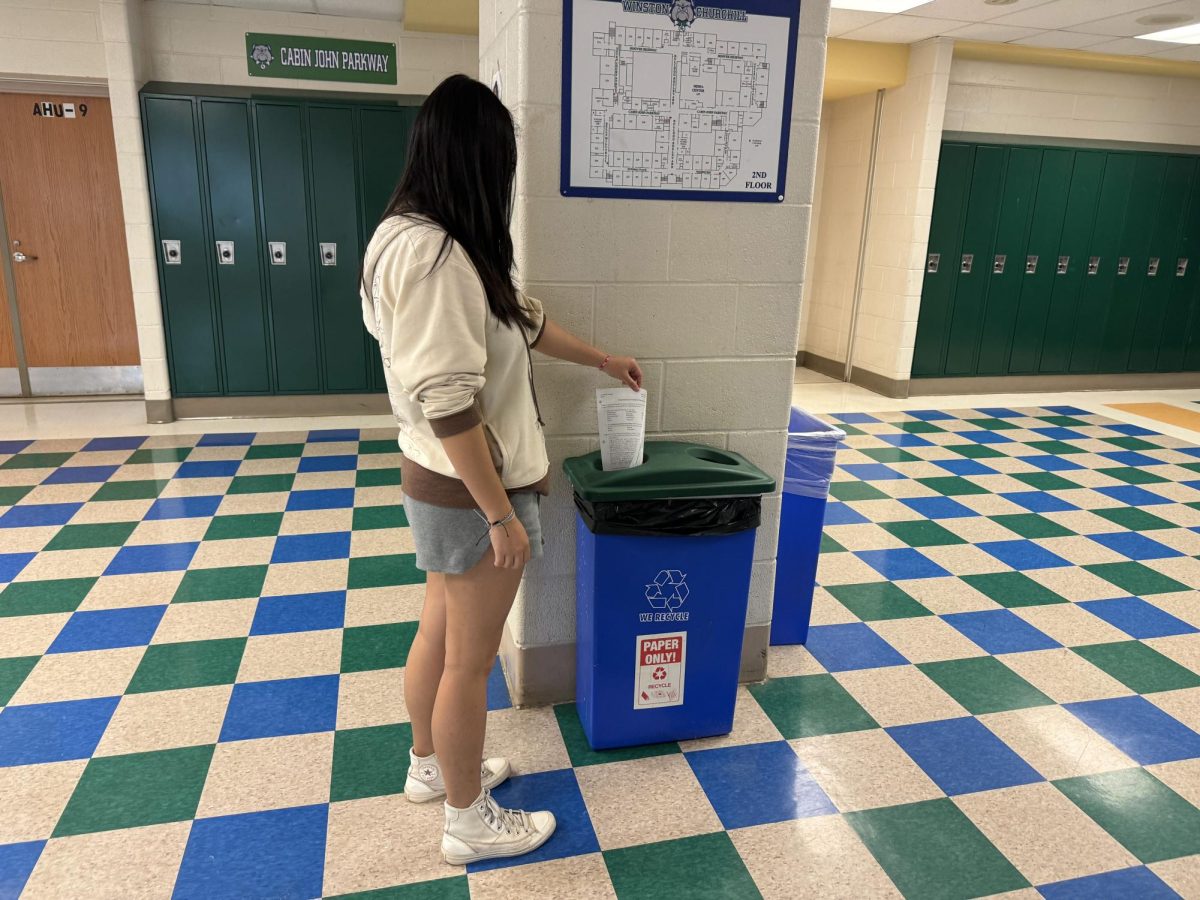The foul odor that has plagued the World
Language hallway has struck again, and according to students and staff, it is
even more prominent than in years past.
According to a 2010 Observer article, a 2009 inspection performed by Building
Dynamics, LLC, a private consultant hired by the county, determined that the
odor was attributed to “floor drains from the boiler rooms.” Five years after
the inspection, the sewage system is still to blame.
“The smell is coming from the sewage system under the school,”
building services manager Angel Delgado said. “It then enters the building
through the ventilation system in the bathrooms and through open windows in the
classrooms.”
Students and teachers first noticed the problem over 10 years ago, after the
school’s modernization, and while the issue has been addressed several times,
the odor seems to always make its way back into the classrooms.
“I do not remember it being an issue before the modernization,”
Principal Joan Benz said. “It became a problem afterwards, and it has been
pretty constant ever since.”
According to Benz, there is only so much the school can do to fix this issue
and ultimately, it is up to MCPS to come in and address the situation.
“We have a whole department of environmental protection employed by MCPS
that looks into these things,” Benz said. “When the smell appears,
building services contacts them and they come and check it out.”
According to Delgado, the county has addressed the issue on several occasions
and treated it as recently as last year.
“The plumbing department sent a couple of plumbers over and they went to
the roof to check on the vents where the smell was coming from,” Delgado
said. “They then connected the vents to one pipe, which was intended to
direct the smell outside and away from the classrooms.”
Despite these efforts, the odor is still an issue that teachers and students in
the foreign language hallway deal with daily.
“It smells like someone took a lot of eggs out of the refrigerator, left
them out in the sun for hours and then smeared them all over our
classroom,” junior Nesma Belkhodja said.
Not only is the smell unpleasant for those affected by it, but it also disrupts
classroom instruction.
“When you smell it, it is just awful,” Belkhodja said. “It makes
it hard to focus on work because the smell suffocates you.”
According to a teacher who wishes to remain anonymous, the odor reaches a point
where they have to stop teaching to try and fix the issue.
“Sometimes the smell is so overwhelmingly disgusting that it becomes a
disruption to the class because we have to stop what we are doing,” the
teacher said. “We have tried using a spray to mask the smell, but some
students are allergic to the spray, so that is not a very healthy solution
either.”
Despite the concern that teachers and students share about this issue,
according to Delgado, nobody has reported the odor to building services this
year.
Teachers have contacted building services on several occasions in years past
but according to the anonymous teacher, have recently been less inclined to do
so because the problem seems to come back either way.
Until a student or staff member contacts building services again, however, the
county will not hear about the issue nor resolve it.
“I know it is a concern to everyone, but we have to go to the county and
follow the process,” Delgado said. “And for that, I need to have
proof that this is happening. If someone smells it, they need to contact me so
I can forward the issue to the county and they can come check it out. I will
get them here tomorrow if I have to.”







